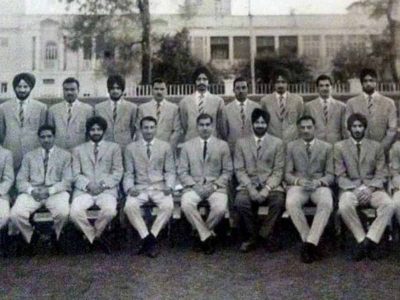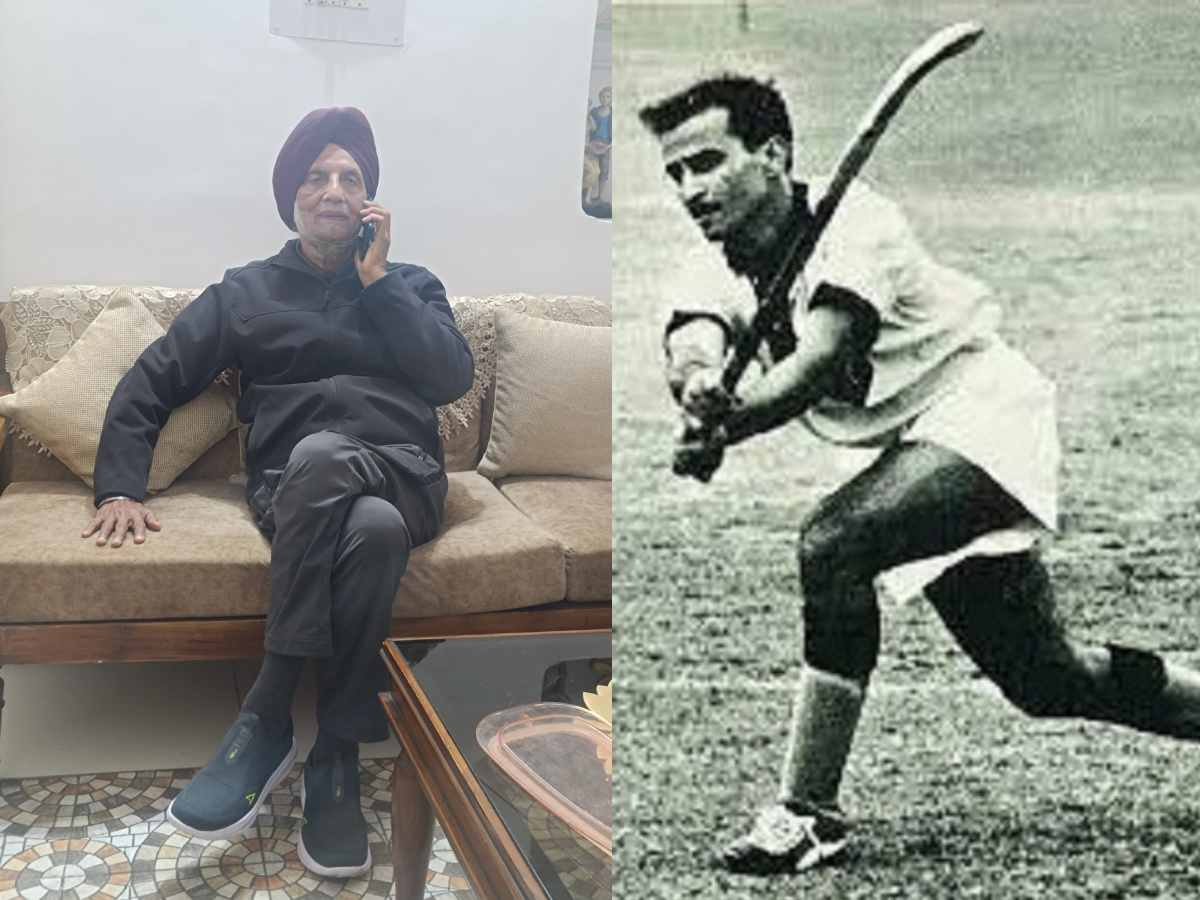Olympics: Step into the Jawaharlal Nehru Stadium in the Capital and you’ll see photographs of India’s sporting legends adorning the walls.
Look for the images of Mohinder Lal, the formidable centre-half, and Harbinder Singh, a brilliant forward.
These men, hailing from Delhi, were crucial members of the Indian hockey team that won gold at the 1964 Tokyo Olympics. The picture of their teammate Joginder Singh is not there even though he was at his best in that epic final.
Joginder was born and raised in Connaught Place area, but eventually moved to Kolkata. Mohinder was from Paharganj, while Harbinder still lives at Mahabat Khan Road, just across the Bengali Market.
Ahead of the Paris Olympics, which begins on July 26, Harbinder reminisced about the final against Pakistan at Tokyo.
“It was the first time that the world’s biggest sporting extravaganza was taking place in Asia. The final was played on a cold afternoon on November 23, 1964, at the Komazawa Olympic Park in Tokyo. The first half was played at a scorching pace but no goal was scored. There was an unruly incident with some of the Pakistani players attacking the Indians,” he recalls.
Also read: Aiming for the maiden Olympic medal via Sonepat centre
Late Jasdev Singh, who commentated on that match, had once said, “The final was briefly interrupted for the tempers to cool down. Actually, tension was palpable from the outset.”
Harbinder and Joginder constantly attacked the Pakistani goal from the word go. Their play was a captivating blend of rhythm, pace, and skill. The first half ended goalless.
“As the second half of the match resumed, the Indian forwards again tried to pierce the opposition goal. A penalty stroke was awarded to India, and Mohinder seized the opportunity, scoring in the 41st minute. He hit the ball with awesome power and Pakistan’s goalkeeper could not stop it,” recalls Harbinder, who was also an ace athlete in his younger days.
For India, it was a grudge match as they lost to Pakistan in the 1960 Rome Olympic final. Habul Mukherjee, who used to play hockey in a dhoti in his heydays, was the coach of the victorious India team.
India finished on top in the pool with 12 points, beating Belgium 2-0, Hong Kong 6-0, Malaysia 3-1, Canada 3-0 and Holland 2-1, besides drawing with Germany and Spain. In the semi-final, India beat Australia 3-1 to set up their third consecutive clash with Pakistan in the Olympic finals.

Five minutes into the second half, a penalty corner was awarded to India which was taken by India’s ‘Rock of Gibralter’ Prithipal Singh. Prithipal had been fantastic in the Tokyo Olympics thus far, and had scored 11 goals.
However, this penalty corner was to be his most important. His stinging shot was deflected off the goalkeeper’s pad and stopped by Pakistan’s full-back Munir Dar with his foot. Centre half Mohinder converted the resultant penalty stroke in the 41st minute to give India a 1-0 lead.
Pakistan fought back ferociously in the closing stages of the match and gave India many anxious moments. Shankar Lakshman, the Indian custodian, played superbly and saved two sizzling penalty corner hits.
The triumphant Indian hockey team received a memorable welcome at the Palam Airport upon their return from Tokyo. Late Jasdev once recalled, “From Palam Airport to the National Stadium (now Major Dhyan Chand National Stadium), the team was showered with flowers by passionate hockey fans of Delhi. The stars travelled in open-top cars, acknowledging the cheers of their supporters Mohinder became a star overnight.
He had learnt his hockey in the gullies of Paharganj and Railway Stadium (Karnail Singh Stadium) close to his house.
Says Gurbux Singh, who played the 1964 final, and later led India in the Mexico Olympic Games of 1968, “We were simply in no mood to concede the final against our arch rival. Both Mohinder and Joginder were my friends. After Tokyo, Joginder left Delhi and settled in my city Kolkata. Both were true athletes and used to practice for hours together in their young days in Delhi.”
Later, Mohinder settled in Spain and even coached their national team. He died there a few years ago. Joginder also known as Jogi paaji completed his schooling from MB School, Mandir Marg, and Khalsa School, Lajpat Nagar. He too has passed away. It may be recalled that cricketer Mohinder Amarnath was also an alumnus of MB School.
Some students of Delhi’s St. Columbus School and Government School, Netaji Nagar were also listening to the commentary of the epic India-Pakistan final. Some students of Delhi’s St. Columbus School and Government School, Netaji Nagar were also listening to the commentary of the epic India-Pakistan final.
Also read: Delhi: Recalling a visit to the Pakistan High Commission
Anupam Gulati was also one of them. That commentary of Melville De Mello and Jasdev Singh made a deep impact on the young mind of Gulati, and he decided to became a hockey commentator. He did that after a couple of years. He is considered as the voice of hockey in India and is a very respected man among the hockey lovers of India.
His knowledge of the game is phenomenal. Ajit Dubey, who was glued to his transistor in his Netaji Nagar School, recalls, “That was my first tryst with Jasdev Singh’s voice. I became his life-long admirer after the match.
Even after 60 years, I vividly remember how the residents of Sarojini Nagar, where I used to live then, celebrated India’s victory.” Dubey retired from Airport Authority of India as an Executive Director a couple of years ago.





